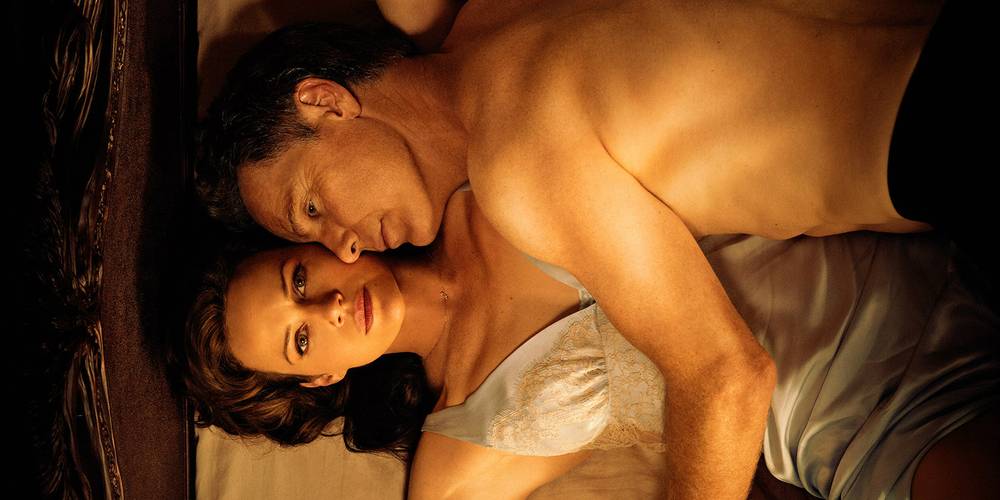It's been said before, and it'll be said
again: 2017 has been the year for Stephen King adaptations. And with
Netflix's release of Gerald's Game, the famous author's work
has yet again been plucked from the page, and given new life on the
screen. While the novel seems to have a reputation as one of King's
lesser works, the film is the polar opposite, as it is a claustrophobic
head trip that is set to dazzle the audiences who are about to enjoy its
contents.
Jessie (Carla Gugino) and Gerald Burlingame
(Bruce Greenwood) head off to a secluded getaway for a weekend of
marital rehab. With Gerald looking to spice things up with a little bit
of kink, the couple gets off to a bad start when Jessie confronts him
about his obsession with dominating her. Things only get worse when her
husband dies due to a heart attack, just after he has handcuffed her to
the bed. With no easy means of escape, and no one but herself in the
room, Jessie's about to go through quite the interesting weekend.
So far this year, there have been two levels of Stephen King adaptation: either it's a Dark Tower level experiment, or an IT style success. Gerald's Game
lands on the better side of the spectrum, as co-writer / director Mike
Flanagan takes what could have been a solid hour of anthology TV and
turns it into an engrossing feature film. The tension of Jessie's
confinement, as well as the mental gymnastics she goes through due to
her predicament, are all pitch perfect, with Carla Gugino carrying a
substantial portion of the film.
Both Gugino and Bruce Greenwood turn in
nuanced portrayals of a married couple on the proverbial rocks, and in
the section of the film that opens on that story, they really do a good
job of convincing the audience that they'd be perfectly ok if the film
just focused on that story. Of course, this being a Stephen King story,
things get deadly, and they get weird, with the stranger side of the
spectrum allowing our duo to play different facets of their characters'
psyches. While the bulk of the film is focused on Jessie's story,
Greenwood's Gerald makes himself very much present throughout the
narrative of Gerald's Game, without being intrusive or extreme.
His character is ambiguous, being left for the audience to determine
the level of his true villainy, and it shows through every piece of the
finished product.
The best part about Gerald's Game,
besides the presence of a powerful script with two equally luminary
participants shining in its light, is the cinematography. Michael
Fimognari's framing of the limited locations that the film takes place
in is tight, but never restrictive for the sake of being so. Naturally
flowing with the story's expanding and contracting viewpoint, it's a
pretty fantastic film to watch, as well as to digest from a narrative
perspective. Of course, all of this praise helps the one flaw of Gerald's Game's narrative stand out all the more.
While the film manages to bring itself in at a
taut 103 minutes, the film could have been a little tighter if it
didn't fall into an expository rabbit hole in its epilogue. Surely there
are pieces and details that are vital to the story's ultimate
catharsis, but considering how well paced the rest of the film before it
was, the ending to Gerald's Game steals some of the wind from
the movie's overall sails. The fact that a sequence of intense body
horror and tension precedes this epilogue serves as a hard barrier
between the two tones of the film, and if anything, the moments after
the shock and awe of Flanagan's well-crafted film should have been
shorter and sweeter.
With the thrill and punch of the better
Stephen King films we've experienced, Netflix has now officially entered
the Stephen King business with Gerald's Game. If this is any
indication of what a continued partnership would bring, both parties
should look for as many chances as they can to stay together.
Read more >> Flatliners Review
Read more >> Flatliners Review









0 comments:
Post a Comment